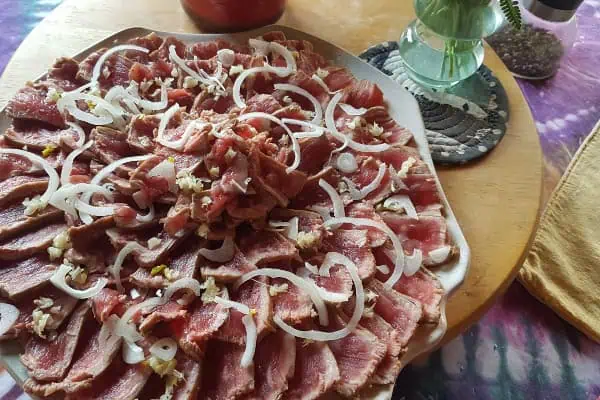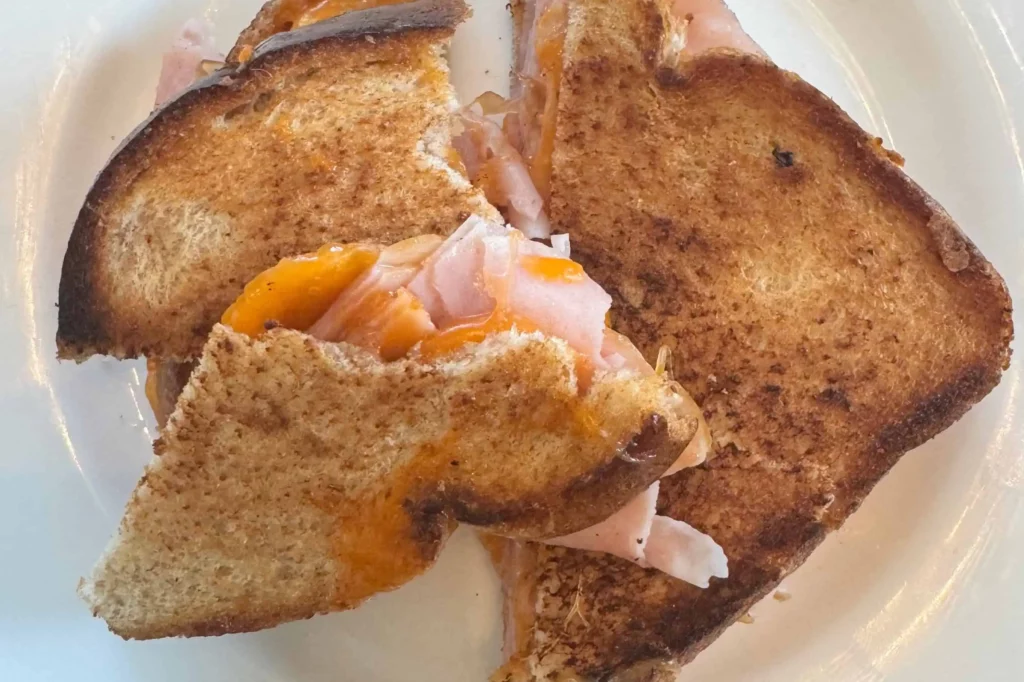When I was growing up, a Christmas feast at our house included turkey and stuffing, mashed potatoes and gravy, corn, ambrosia salad, cranberry sauce, homemade sausages, buns, pickles and sparkling juice, all followed by some elaborate dessert (or two).
We are now trying to eat as local as possible, keeping our meals as wholesome and un-processed as possible. So our holiday menu varies – homemade wild meat and veggie tacos, moose heart and baked vegetables, make-your-own-salad and appetizers. Dinner is followed by walking or sledding and topped off later with some fruit soup or homemade Yukon berry crisp.
Through my schooling in holistic nutrition I learned some tricks to aid digestion and lesson that heavy, tired and ‘stuffed’ feeling we typically experience after a large holiday dinner.
So, if you find yourself at a turkey feast like I had in my youth, here are some tips to help your digestive system process the meal. Following these, you should have more energy, feel less full and not suffer any intestinal symptoms.
Tip #1 – Avoid combining meat and carbs (potatoes, bread, or pasta especially)
Combining these two foods is actually the hardest combination for our digestive tract. Our typical meat-and-potatoes combination slows down digestion and makes us feel sluggish. In this case, a lot of the body’s energy is concentrated in our stomachs for digestive purposes, which pulls energy away from other activities.
If you just can’t say no to the mashed potatoes and turkey, eat your potatoes first, and wait at least 40 minutes to eat your protein and other vegetables. Maybe this could be a new family tradition?
Tip #2 – Only consume one type of protein
Eating more than one type of protein at the same time is also hard on the digestive tract. If you are having turkey, skip the cheese sauce. Your energy level will be higher and the chance of feeling bloated will decrease.
Tip #3 – Do not have fruit with your meal
When combined with meat, fruit can cause gas and intestinal upset. These two foods are hard to digest together because they require different stomach environments for processing. This can cause fatigue and improper digestion.
Tip #4 – Do not follow a meal with dessert – no matter how much you want to
Dessert right after a meal slows digestion and increases intestinal discomfort – gas, bloating, heartburn, etc. Wait at least 2 hours after a meal before diving into dessert.
Tip #5 – Skip the mealtime drink
When you drink any liquid with meals, you dilute your stomach enzymes that aid digestion, slowing the overall digestion. Try to keep beverages 40-60 minutes away from your meal. If your goal is to not eat too much, if you drink a large glass of water 40 minutes beforehand that will help curb your appetite for the big meal ahead.
Tip #6 – Chew your food well
One of the biggest causes of food intolerance is improper chewing habits. Aim to chew each mouthful until all food bits are a uniform smoothness, usually 20 chews or more.
Chewing thoroughly allows your salivary glands to mix the enzyme amylase – needed for carbohydrate digestion – with your food. You will also be less likely to overeat if you take your time.
The next time you get an invite to a holiday feast, don’t worry. If you decide ahead of time how you want to feel afterwards, then you’re in control. Your digestive system will thank you for it.
Amoree Briggs lives in the Yukon countryside with her family and has just completed her diploma in holistic nutrition.




